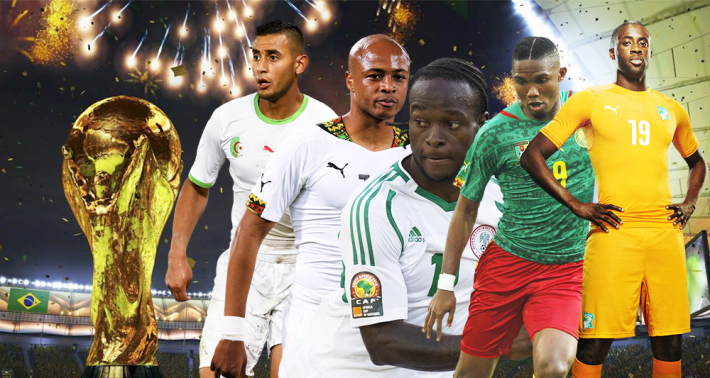This initial assessment paints a stark picture of African representation at the 2014 World Cup after the first round of group stage matches. The enthusiasm and expectations that typically accompany African nations into the tournament have quickly met the hard realities of elite international football.
Summary of African Teams’ Performances (1st Round):
Ivory Coast (Win, 2-1 vs Japan): The only African team to secure a win. Drogba’s impact off the bench turned the game around. Encouraging, but upcoming matches vs. Colombia and Greece will be tougher.
Nigeria (Draw, 0-0 vs Iran): Dominated possession but lacked the creativity and sharpness to break down a defensive opponent. A missed opportunity to secure crucial points.
Ghana (Loss, 1-2 vs USA): A game they could and maybe should have drawn. Defensive lapses and questionable coaching decisions cost them in the end.
Algeria (Loss, 1-2 vs Belgium): Scored early but then withdrew, allowing Belgium to dominate and come back. A more courageous approach might have yielded a better result.
Cameroon (Loss, 0-1 vs Mexico): Disorganized and uninspired. The margin was flattering considering Mexico had two legitimate goals ruled out.
Key Takeaways:
Coaching decisions and tactical rigidity seem to be a recurring issue.
There’s been a lack of clinical finishing and often passive second-half performances.
The only bright spot has been the resilience of the Ivory Coast — though even they needed a major lift from Drogba.
Outlook:
With such a start, realistically only two teams — Ivory Coast and possibly Nigeria — appear to have a path forward if they improve in their next games. Ghana’s and Algeria’s paths look steep, and Cameroon already seems on the brink.
Should Africa lower its ambitions?
Not necessarily. But there is a clear need for:
Better preparation and tactical discipline
Stronger in-game management from coaches
More mental resilience under pressure
The raw talent is there — what’s often missing is the structure, consistency, and experience to navigate group-stage challenges effectively.
The next round of matches will be critical. If Africa wants to avoid a historically poor showing, it’s now or never to rise to the occasion.











